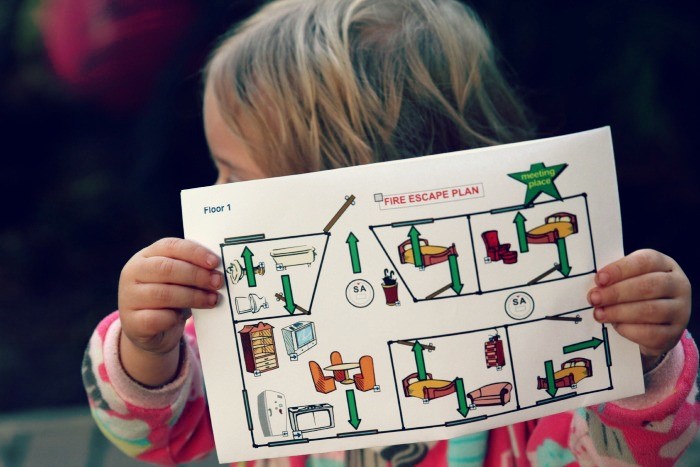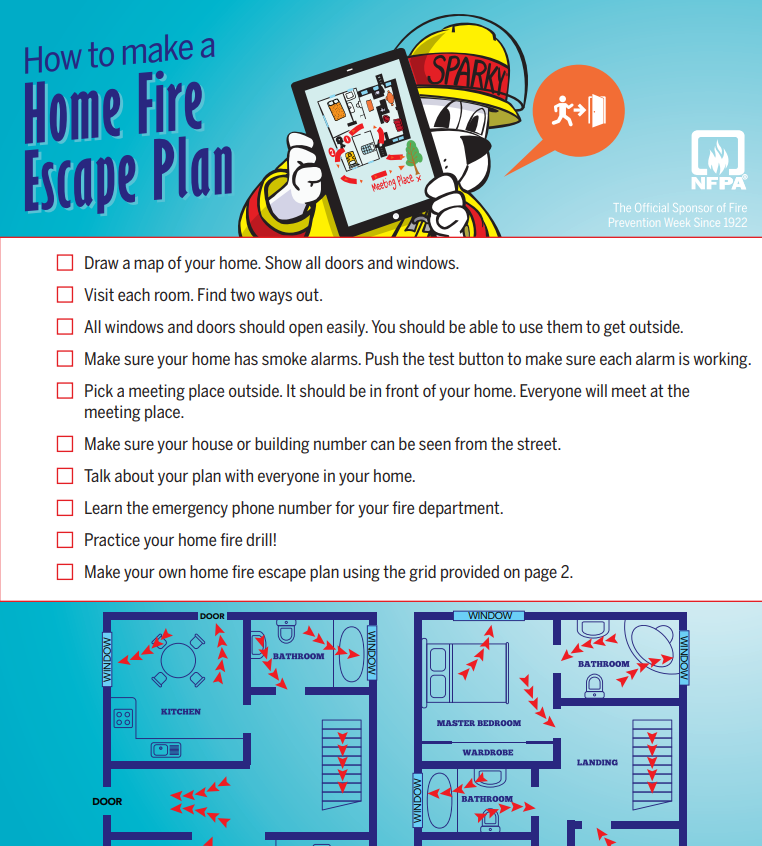Picture this – it’s Wednesday night, 2am and everyone is sound asleep. The children, aged 2 and 5, are downstairs in their bedrooms and the family dog is in the kennel outside. Suddenly, out of nowhere, like a grand strike of lightening filling the night sky, the calm serenity of the night is fractured. You are abruptly jolted awake by the ear-piercing screech of the fire alarm. The smell of smoke begins to fill your nostrils and within a split second, your heart rate doubles. Your mind starts to race…why is there a fire? Where is this fire? Do the kids know what to do in a fire – but they are downstairs?! Anxiety defiantly grips every part of your body as you leap out of bed and realise the fire is coming from the kitchen – a mere 10m away from the children’s bedroom.
Approximately, seven people die every day as a result of fires in the home. But alarmingly, the U.S. Fire Administration reports that children below the age of 5 have a significantly higher risk of dying in a residential fire, with more than 40% of children killed or injured in a home fire being under the age of 5.

Family Escape Plan – Practice to be Prepared
Do these statistics make your palms sweat and your heart race? Do you have a little one at home? Would they know what to do in the event of an emergency? Most fatal fires are preventable, so it is important to make the time to prepare now to protect yourself, your family, and your home.
Arguably, the most important plan you will ever make is your family’s fire escape plan. A fire escape plan is a personalised plan of action that outlines how people should escape a burning house and identifies evacuation routes in the event of a fire.
How to make a fire escape plan:
- Gather all members of your family and together, make a plan (see resource list)
- Walk through your home and inspect all possible exits and escape routes. Determine two ways out of each room, including walls and doors.
- Mark the location of each smoke alarm and check that smoke alarms are working
- Agree on a safe spot to meet outside the house
- Determine the roles of each person in your family in the case of a fire
- Teach children, in an age-appropriate manner, on how to escape on their own in case you can’t help them
- PRACTICE, PRACTICE, PRACTICE
Practice really is the key to being prepared for an emergency. Practice during the day, practice during the night, make your drill as realistic as possible. It is worth the time and effort to ensure that your family can quickly and safely evacuate your home.

Resources to help you create your family escape planResources to help you create your family escape plan
- https://www.qfes.qld.gov.au/fireescape/
- https://www.mysafela.org/wp-content/uploads/2016/02/EscapePlan_CFPO_Eng.pdf
- http://www.sparky.org/files/parents/tip/files/EscapeGrid.pdf
- https://www.nfpa.org//-/media/Files/Public-Education/Campaigns/Fire-Prevention-Week/FPW17/FPW17EscapePlanGrid.pdf
- http://keepkidsfiresafe.org/kids1.html
